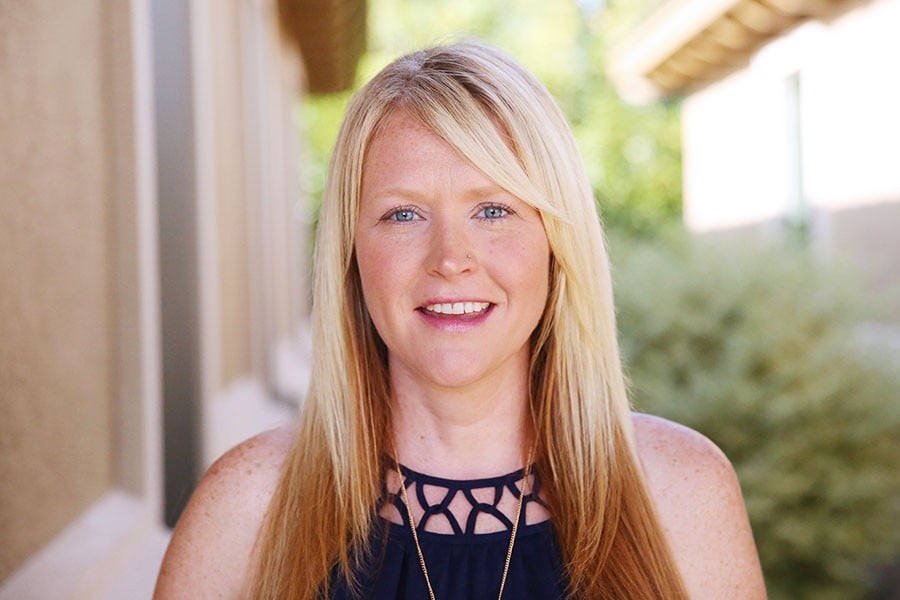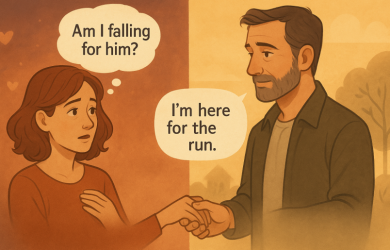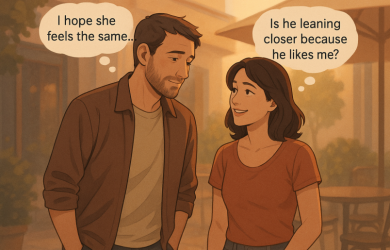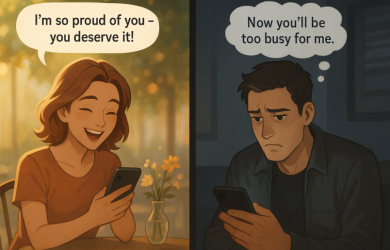Love vs. Lust: Meaning, Signs and How to Spot the Differences

Heal & Grow Daily for a Happier Relationship
Subscribe FREEKey Takeaways
Marriage.com AI Quick Summary
Sparkling connection, undeniable chemistry – the beginning of a relationship can feel like a whirlwind of emotions. But amidst the butterflies and starry nights, a question might linger: is this love, or just lust?
It’s a question we’ve all probably asked ourselves at some point.
Love and lust, though sometimes intertwined, are two very different experiences.
Understanding the difference can help you manage those early stages of connection and steer your relationship towards something fulfilling and long-lasting.
Let’s explore the fascinating world of love versus lust. We’ll uncover the signs of each, and how they might influence your relationship as it deepens. This knowledge can be your guiding light on the path of connection.
What do we mean by ‘love’ and ‘lust’?
The beginning of a relationship can be a whirlwind of emotions. There’s that undeniable attraction, those heady first encounters, and a yearning to know the person better.
But a question often surfaces: is this a spark that will ignite lasting love, or simply a flicker of fleeting desire?
Love and lust, though sometimes confused, are distinct experiences.
Recognizing the difference can be a valuable tool for navigating the early stages of a relationship and setting yourself up for something fulfilling and long-term.
Love: A deep connection
Love transcends physical attraction. It’s a deep emotional connection built on respect, understanding, and a genuine interest in your partner’s well-being.
It creates a sense of security and allows you to be your authentic self, vulnerabilities and all. Love grows stronger with time as you share experiences, build trust, and support each other through life’s challenges.
Lust: Power of attraction
Lust is an intense, often short-lived, desire fueled by physical attraction.
It’s that initial spark, the feeling of being drawn to someone on a purely physical level. Lust can be exciting and exhilarating, but it often lacks the emotional depth and commitment found in love.
While lust can be the starting point for some relationships, it doesn’t guarantee long-term compatibility.
7 identifying signs of love and lust in a relationship
Let’s understand the terms in detail below
-
Love
Love is a beautiful mystery, a kaleidoscope of emotions that can leave us both exhilarated and confused. Especially in the early stages of a relationship, it can be hard to tell if that spark is love’s gentle flame or just a fleeting flicker of lust.
If you are overwhelmed by your emotions, you may not notice when you start falling in love with someone. But how do you know it’s love?
Here are some apparent signs of love that are easy to pick up on:
1. You feel emotionally attached
Love goes beyond the physical. It’s a deep emotional connection where you feel a sense of empathy and understanding for your partner.
Unlike lust, love brings together both passion and compassion that you feel for your beloved. You feel emotionally bound to what the other person is feeling. It matters to you how they feel.
Research shows that emotional intimacy is an integral part of all loving relationships. In addition to sexual satisfaction, you seek to build intimacy and affection when you love someone.
2. You make plans for the future
Love isn’t just about stolen glances and whispered secrets. It’s about envisioning a future together.
From planning trips to getting old together, you can make plans for a future that involves the partner. It is an indicator that you see them as a part of your future.
3. You can be emotionally vulnerable
Love builds a safe space where you can shed your emotional armor and be completely open.
It offers not just sexual fulfillment but also emotional satisfaction. A big part of this is the feeling of security and comfort that love offers ideally.
Love gives you an avenue to be who you are and comfortably express your vulnerabilities and flaws. And studies show that positive reception of emotional vulnerability can enhance a relationship.
You don’t fear rejection and judgment when you are genuinely in love with your lover, and they love you back.
4. You are invested in their life
Love makes their world intricately woven into yours. It makes you see you and your lover as bound to each other in every way. Their pain, problems, happiness, and choices impact how you feel.
You care about what happens in their personal and professional life.
5. It builds over time
Unlike lust’s fiery flash, love takes time to bloom. It has depth and breadth to it.
Love becomes more robust and durable when you and the one you love can combat challenging situations together.
Just like the other two feelings, love can be powerful and overwhelming. But it is not as unstable or temporary as lust.
It is harder to deal with separation from a partner when you are in love than if you simply lust for them as you are more emotionally invested.
6. Effortless communication
Conversations flow naturally, and you find yourselves talking for hours without even realizing it. There’s a comfortable silence too, where you can simply enjoy each other’s presence.
7. Respectful disagreements
Even when you disagree, you can have a healthy debate without resorting to hurtful words or ultimatums. Love fosters respect, allowing you to navigate differences constructively.
-
Lust
Lust can be an intoxicating sensation, a rush of excitement that makes your heart race and your palms sweat. But it’s important to distinguish it from love’s deeper connection.
Here are 7 signs of lust that can help you decipher the difference:
1. Overwhelmed by thoughts of sex
What is lust? When it takes the wheel, your focus narrows to the physical.
Lusting over someone, your mind may get consumed by thoughts of sexual fulfillment and physical closeness. It can become obsessive and consuming for you.
Your attraction towards someone else becomes an important aspect of your life. Your desire for them defines your conduct towards them.
2. Lack of curiosity about their life
Sparkling conversation is a hallmark of love, but lust often lacks that depth.
You are interested in the physical attributes and sexual desire of the one you are interested in. But anything apart from that is not something you feel too interested in.
You don’t need to get to know this person by talking to them about varied topics. You are more self-centered when you have lustful feelings, as it is your sexual satisfaction that matters to you the most.
3. Living in the present
Lust thrives on instant gratification.
Lust in a relationship can make you hyper-focused on the present and what you need right now.
The love vs. lust difference is evident when you are not actively envisioning a future together. Lust is focused on instant sexual gratification, where you don’t think about whether you could be in a long-term relationship with them.
4. Unbothered by different values
Lust often overlooks differences in values or life goals. Lust can be about sexual compatibility and nothing else at times.
Firstly, you don’t feel the need to figure out how the other person feels about different things, what their values are, and what matters to them. And secondly, if you find out that they are opposing views, you are unaffected by them.
You don’t spend time trying to change the opinion of the person you are involved with as you feel that it does not make a difference in your life.
5. More private time than public or social time
Lust tends to crave privacy. A common among the signs of lust in a man or woman.
Physical signs of lust include the time you are willing to spend in the bedroom with them instead of being around people.
Lust entails the desire for constant sexual fulfillment, which leads to most of your time being spent inside the bedroom. You don’t feel the need to go out on dates, engage with others as a couple or get to know each other outside of the bedroom.
6. Jealousy with no cause
Healthy love creates trust and security. In lust, possessiveness and unfounded jealousy can arise easily. This can be one of the subtle signs of lust in a woman or man.
7. Sudden shift in focus
Is it love or lust when your attention span is not very wide? Lust can be fleeting. Once the initial physical intensity fades, the connection might suddenly fizzle out.
Why should we understand the difference between love vs. lust?
Love and lust: both pull at our hearts, but in very different ways.
Love is a deep connection that goes beyond the physical. Lust, on the other hand, is more like a spark.
Understanding the difference can be like having a compass in the sometimes-confusing landscape of relationships.
Why does this matter?
Because confusing love and lust can lead to disappointment. When that initial spark fades, you might be left feeling empty if there’s no real connection there.
By recognizing the difference, you can handle relationships with more clarity.
You can focus on finding someone who shares your values and wants the same things out of life, someone you can build a lasting and fulfilling connection with.
7 basic ways to tell the difference between love and lust
Sexual desire is usually a part of both lust and love, making it hard to distinguish between the two.
Lust may overwhelm your senses in a way that makes you feel that it is love. You may feel drawn to someone due to a sexual desire, but you may assume the pull you feel is because of love.
To avoid getting confused between love and lust, try to give the relationship more time, as things will become clear eventually. You can also read the difference between the two and assess your relationship based on these.
Certain sentiments are common to both love and lust, which can confuse you about whether you love someone or you just feel lustful towards them.
Here are some ways to tell the difference between love vs. lust:
1. Feelings
The feelings associated with real love vs. lust in marriage are very different.
Love is an intense feeling of care and affection for another person. It’s so intense that a person who experiences love often forms a secure emotional attachment to the person they love.
Lust is more of a raw sexual desire and a pull between each other, often based on physical attraction. This can either fizzle out or turn into love.
So, what is the difference between lust and love?
Love usually occurs as a couple discovers each other’s personality and develops trust and understanding.
Another difference is that love isn’t a selfish feeling. You want what’s best for the other person, and you’re motivated and energized to be a better person yourself.
2. Timelines
When comparing love vs. lust, most people will generally say that they understand that love takes time to grow (unless they advocate love at first sight). But lust can happen immediately.
And how long does lust last? It can also sometimes take time to develop between two people. The lustful feeling may intensify over time as you spend more time around a person.
Also, you may feel intense lust that may cloud your judgment temporarily. So you can give yourself a chance to decide if love will have a chance to grow from lust.
Research shows that love makes one look and envision the future, while lust makes you focus on the present.
Love is a long-lasting and fulfilling emotion that takes time to develop. And it gets better with age, just like fine wine.
Over time, the lust will start to calm down and instead may be replaced with a more profound sense of love. At this point, some couples might not understand that this is when the effort is needed to keep your sex life fun and exciting.
3. Time spent together
When you are in the last stage of forming a new relationship, you’ll probably spend more time enjoying intimacy rather than investing time in a deep conversation.
But the difference between love vs. lust becomes apparent when you compare this with love.
As time moves on, however, and as you fall in love, you’ll find that you spend as much time learning about each other and discussing your emotional commitment toward each other.
4. Future commitment
In the lustful stage of your relationship, you may not have any immediate desire for commitment. But when you reach the love stage, you’ll be invested and committed emotionally and physically.
When you are in love, you want to plan for your future together and continue learning more about your partner. If you don’t develop this desire – you probably don’t want to turn this particular relationship into a loving one!
When it comes to love vs. lust, you want to think about your loving future together, but that might not be the case in lust.
5. Relationship dynamics
If you are in a stage of lust, you may be lovers, but you may not necessarily be friends.
However, if you are in love, you will be friends too. You probably won’t stop thinking about your partner and will want to know as much as you can about them.
Furthermore, you have a more balanced view of your partner and accept them, imperfections and all.
Instead of building an idealized image of them, you are open to their flaws and love them all the same. You are also comfortable being yourself, and your differences don’t stand in the way.
In a relationship that transitions from the lust to the love stage, you may start out not being friends, but over time you’ll develop deeper feelings and a stronger bond between you both. There is always friendship involved in love in love vs. lust, but not necessarily in lust.
6. Level of security
In a loving relationship, there is typically a sense of emotional security and comfort.
Partners usually feel safe and supported, knowing that they can rely on each other during difficult times and that their feelings and needs are respected.
In contrast, lust-driven relationships may lack this emotional security as they are primarily focused on physical attraction and immediate gratification; it may not provide the same level of emotional support and reassurance.
In a lustful relationship, there might be a constant underlying feeling of insecurity or uncertainty about the depth of the connection.
Lust can be intense and passionate, but it may not necessarily fulfill the emotional needs that come with love.
Emotional security is a fundamental aspect of a healthy and lasting relationship, and it is often more present in relationships built on love, where partners are committed to each other’s emotional well-being and personal growth.
Watch this video by motivational speaker couples Lisa and Tom Bilyeu discussing how to feel more secure in relationships:
7. Commitment to growth
In a loving relationship, partners are often committed to growing together and supporting each other’s personal development.
They recognize that both individuals will face challenges, and they are willing to work through these difficulties as a team.
On the other hand, lust-driven relationships may avoid deeper emotional connections and may not foster personal growth.
Lust tends to focus on the physical aspect of the relationship and may not address underlying emotional issues or engage in meaningful discussions about personal development.
In a lustful relationship, partners may not feel the same level of commitment to one another’s growth, and there might be a lack of willingness to work through challenges together.
Instead, the relationship may remain on a surface level, with little exploration of each other’s deeper thoughts, feelings, and aspirations.
Know where you stand
Can lust turn into love? Well, some relationships will make it to the live stage, while others are never destined to get there.
Love vs. lust, either way, there will be an incredible journey of self-discovery waiting for you, and one day the right relationship will turn from lust into true love.
By now, the difference between love versus lust would be clear to you. Now you can make out where your relationship actually stands.
Just know that true love encourages partners to embrace each other’s imperfections and support each other’s journey of self-improvement.
It involves recognizing that growth and change are natural parts of life, and it requires a commitment to adapt and evolve as a couple.
Understanding this distinction can help individuals assess the nature of their relationship and determine if it is built on a foundation of genuine emotional connection and potential for long-term growth.
Want a healthier, happier relationship - one step at a time?
 Tips
Tips
Write your tip or submit a video tip
All tips are reviewed before the publishing.
Share this article on
Recent Articles
Related Quizzes
Heal & Grow Daily for a Happier, Healthier Relationship
Subscribe FREE on YouTube We'd love your feedback!
We'd love your feedback!
 Expert Q&A
Expert Q&A
Ask your question related to this topic & get the support you deserve from experts.

 Reviewed By
Reviewed By


















 Thanks for your feedback!
Thanks for your feedback!